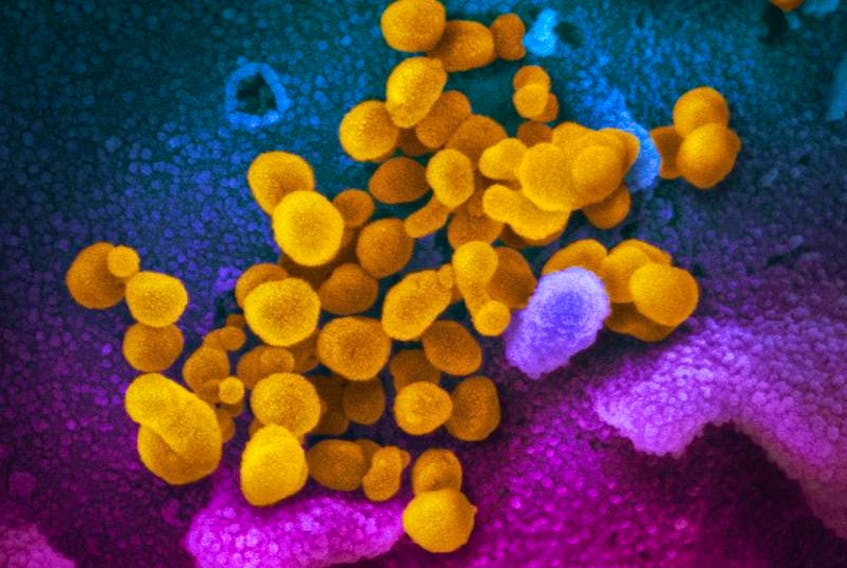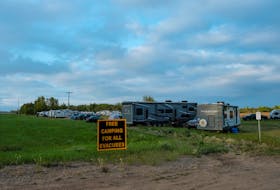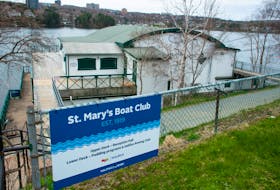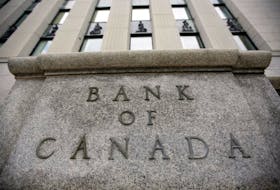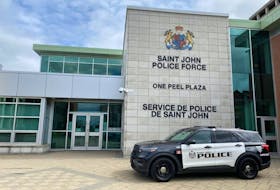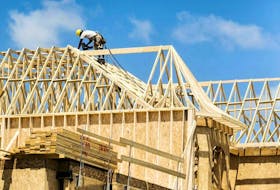Nova Scotia has doubled its testing capacity for COVID-19, the province announced Tuesday, when 10 more cases of the severe respiratory virus were identified.
The increase brings the total number to 51 cases, all of which are either directly related to travel or have connections to earlier travel-related cases.
Several of the new cases are connected to groups or families who have returned to Nova Scotia following travel outside of Canada. None of these cases are related to spread within the community.
"Public health has been in contact with these individuals and are working to identify others who may have come in close contact with them,” the release said. “Those individuals are also being directed to self-isolate at home, away from the public, for 14 days."
The 51 people range in age from under 10 to their mid-70s, with one person still in hospital. Another person has been released from hospital after recovering from the virus.
Amid a flood of complaints online about access to testing and difficulties in getting through to the 811 phone line, chief medical officer Dr. Robert Strang announced "good news" at a news conference with Premier Stephen McNeil on Tuesday.
The lab at the QEII microbiology lab in Halifax can now do 400 tests a day, double the previous number, Strang said.
“We know that as the number of cases continues to rise, and we will get more cases, we can expect we will soon see community spread,” he said.
“That is why we’ve taken the actions we’ve taken. All the things around social distancing, all the restrictions we’ve put on the public health order, all the public health measures we’re asking the public to take - such as staying home, hand-washing - it’s all about minimizing the spread of this virus within our province.”
With the added testing capacity, Strang said they’re now able to immediately test all the close contacts of COVID-19 patients back to the first case, instead of isolating them and seeing if they get sick.
People in hospital suspected of having the virus also can now be tested. The changes mean public health investigators will be able to more quickly identify any community spread of COVID-19, Strang said.
Strang also announced that all regulated health practitioners - with the exception of physicians, nurses, nurse practitioners, pharmacists and paramedics - can only stay open for emergent or urgent cases when that care is done face to face under social distancing rules. They will still be allowed to provide virtual care.
Non-regulated health professions such as naturopaths, some massage therapists and Asian medicine therapists must close with the only exception being podiatrists.
Strang said he expects the COVID-19 outbreak to last, at the least, from six to 10 weeks.
"You can't just flip the switch back on; how you return to normal needs to be a slow transition," he said. "Most people aren't aware but public health has been working on this since January in Nova Scotia. We've had a slow ramp up and we'll have a similar slow ramp down. And there's also the issue about more and more we need to be watching, once the first wave is over, the potential for future waves, so we're going to have to continue our active surveillance."
Lying about travel history
As for the 811 changes, the premier said 53 nurse and telehealth associates have been added and another 40 are being trained. The number of phone bank lines will be doubled to 138 lines within two days.
“We are doing this to better support the number of people who are worried about their health,” McNeil said. “It is imperative that if you feel sick and we are not talking about the common cold - we are talking about a spiked fever, a new cough, shortness of breath or crushing fatigue - we want you to first check the 811 website (and check your symptoms with the assessment tool and then if you are prompted, call 811.”
The province also recently changed physician and pharmacist fee codes to allow them to conduct more appointments over the phone or through videoconferencing.
People have reported on Facebook and Twitter that they’ve waited for hours on hold with 811.
“We've had cases of people calling 911 or coming into emergency,” which they should not be doing, Strang said, adding he’s also heard reports people are lying about their travel history, which puts health workers at risk.
Immediately after returning home, travellers must self-isolate for 14 days - meaning they stay on their own property. Under a state of emergency declared on Sunday, people can be fined $1,000 for breaking self-isolation or social distancing rules, and businesses can be fined $7,500 per day. The state of emergency will extend until April 5, when it will be reassessed.
“It’s critically important that you’re truthful about your travel history,” Strang said.
As for the catastrophic impacts that outbreak-related closures have caused for many businesses and employees, McNeil said the province and the federal government will offer financial support including employment insurance changes and tax benefits.
“I want you to know that we know that you are the heart of our economy,” he said. “And I know you’re worried. …. We want to make sure that there are no gaps and we don’t want to leave anyone behind.”
Quick Facts:
- A state of emergency was declared under the Emergency Management Act on March 22 and remains in effect until noon, April 5
- Testing numbers are updated daily at https://novascotia.ca/coronavirus
- Nova Scotia's Health Protection Act gives the chief medical officer the authority to give advice to protect public health and decrease risk to public health presented by communicable diseases such as COVID-19
- Under the state of emergency, government can control or prohibit assembly as well as travel to and from areas. It can also co-ordinate commerce activity and emergency responders

